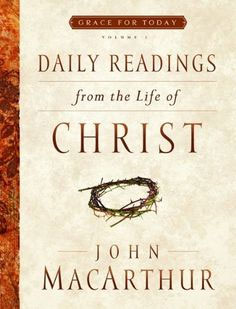Devotionals
December 29 - Perils of the Dragnet, Part 1
A devotional by Grace To You for reading on December 29th
“‘. . . and will throw them into the furnace of fire; in that place there will be weeping and gnashing of teeth’” ( Matthew 13:50 ).
The doctrine of hell is undoubtedly the most difficult one for Christians to accept emotionally. Yet Scripture mentions it too often for us to deny or ignore it. Jesus gives several warnings of it in the Sermon on the Mount. “It is better for you to lose one of the parts of your body, than for your whole body to be thrown into hell” (Matt. 5:29; cf. 5:22; see also Matt. 11:23; 23:33; Mark 3:29 ; Luke 12:9 –10; John 15:6 ).
God’s Word teaches us some basic truths about hell—what this parable calls “the furnace of fire”—that aid us in partially grasping its terror. First, it is a place of constant torment and pain. Jesus called its torment darkness (Matt. 22:13), which means no light penetrates and nothing is visible. Our Lord also called the torment a fire that never goes out ( Mark 9:43 ), from which the damned find no relief.
Second, hell includes the torment of both body and soul. Contrary to some teachings, neither is annihilated at death and never will be. Just as believers’ souls will receive resurrected bodies to enjoy heaven forever, unbelievers’ souls will receive resurrected bodies to experience hell forever (cf. Matt. 10:28; John 5:29 ; Acts 24:15 ). Jesus further called hell a place “where their worm does not die” ( Mark 9:44 ). Once the bodies of deceased believers are consumed by worms, no more harm can be done to them. But the resurrected bodies of unbelievers will never be consumed. Such sobering reminders ought to prompt us to pray for the lost with greater urgency.
Ask Yourself
We do try to avoid thinking of things so gruesome and unending. Even though we don’t treat it as a myth or analogy, we still bristle at the thought of it. But how does a proper understanding of the truth of hell benefit you in your own worship and in your interactions with others?
From Daily Readings from the Life of Christ, Vol. 1, John MacArthur. Copyright © 2008. Used by permission of Moody Publishers, Chicago, IL 60610, www.moodypublishers.com.
Additional Resources- Download our app The Study Bible!
- John MacArthur’s complete sermon archive
- The MacArthur Study Bible
- The complete MacArthur New Testament Commentary series
The content above belongs exclusively to Grace To You - Daily Readings and is provided on HopeLife.org for purely non-profit purposes to help extend the reach of their ministry.
Copyright 2016 by John MacArthur. Used by permission from Grace to You.



